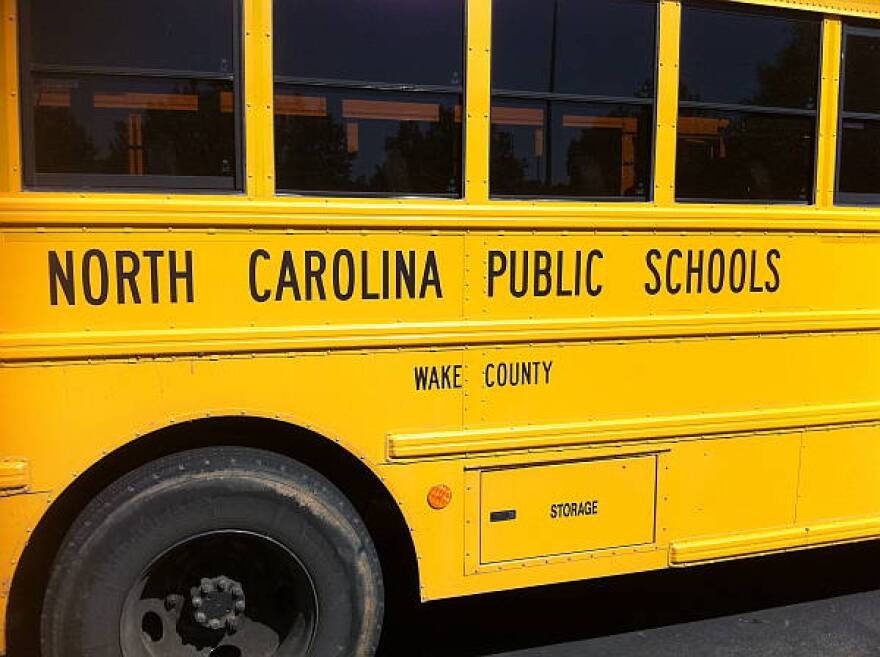In two weeks, most of North Carolina's public school students will head back to the classroom. We talked to two Duke University researchers to get some tips for how parents can start the year off with their best foot forward.
Be There, Or Be Square
Research shows being chronically late or absent from school may have big impacts down the road.
Duke University researcher Amy Schulting says chronic absenteeism has been linked to academic failure, lower graduation rates and even substance abuse. That's why she says it's important for parents to get their kids to school every day on time, especially in the first month.
"We know that attendance in the first weeks of school really sets the stage for the entire school year, and that absenteeism from school is associated with a wide range of negative outcomes for children and adolescents," she said.
Schulting says parents of elementary-aged kids should be especially vigilant. Duke University research shows students who missed a lot of school in the early grades were more likely to be chronically absent in their teen years.
"It's really important in those early years to set the stage for students' regular attendance in school so that when students have that greater autonomy, they will make that choice," she said.
Schulting noted research linking kindergarten and first grade absenteeism with later declines in math and reading scores and school dropout. This negative effect is even more severe for students from low-income families, Schulting said.
"It's really important in those early years to set the stage for students' regular attendance in school."
"Low income students, or high-risk students, have fewer opportunities outside of school for academic involvement, or participation in, say summer camps, afterschool tutoring, things like that," she said. "So really the bulk of their education and academic exposure is occurring at school, so it's particularly important for them to be in attendance at school."
Schulting says teachers can be good resources for parents who struggle with getting their kids to school for logistical or health reasons.
Homework How-To
Homework can be frustrating for students and parents. But Duke University psychology professor Harris Cooper says a parent anxiously hovering over a student's shoulder won't help.
"Probably the most common pitfall for parents is placing too much pressure on kids to get their homework done," Cooper said.
Cooper said parents should remember homework is usually meant as an opportunity for students to practice skills they learn in school. Parents shouldn't expect perfection, or work through every problem with their child unless a teacher asks them to.
"Probably the most common pitfall for parents is placing too much pressure on kids to get their homework done."
"They should monitor their kids' homework, watch for signs of frustration and failure. But they should also not get overly involved," Cooper said. "That means that if the teacher asks them to play a role they should do it. But if the homework is meant to be done alone, they should stay away."
The best thing a parent can do, Cooper said, is to act as a motivator and keep a positive attitude about homework assignments.
"It's important for parents to be positive about homework," he said. "They have to recognize that the attitudes they express are likely to become their child's attitudes."
Cooper said parents should also make sure students have a quiet, calm space to work, and all the materials they need, which can be difficult for large families, or for families with more limited resources.
"The one thing that parents can to is try and get all of their children to try and have quiet time at the same time, and work with teachers and schools to make sure that they have the proper resources available," he said.










